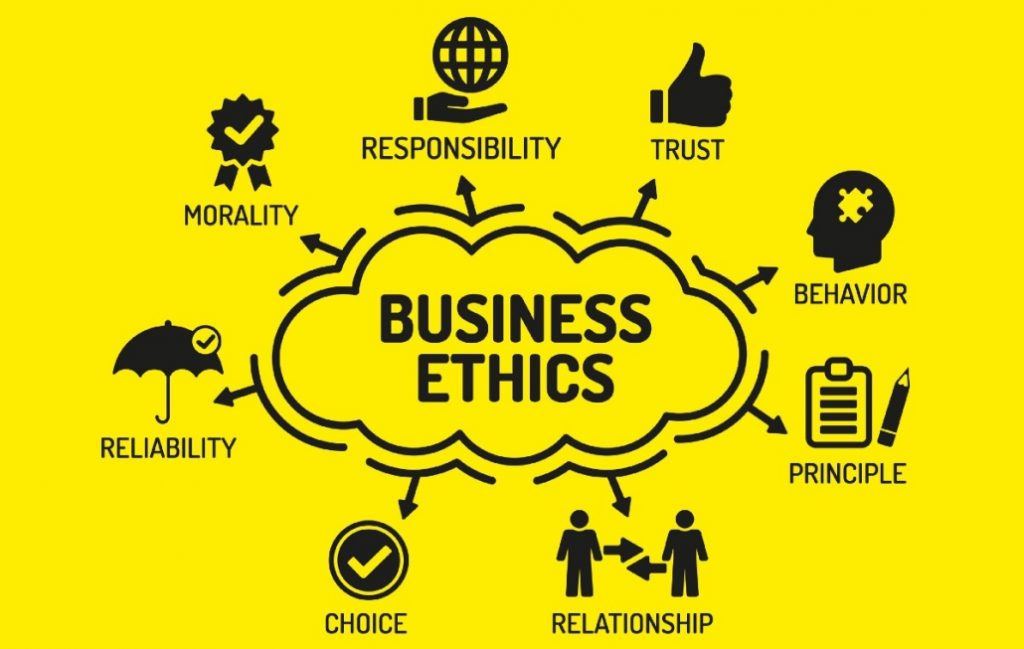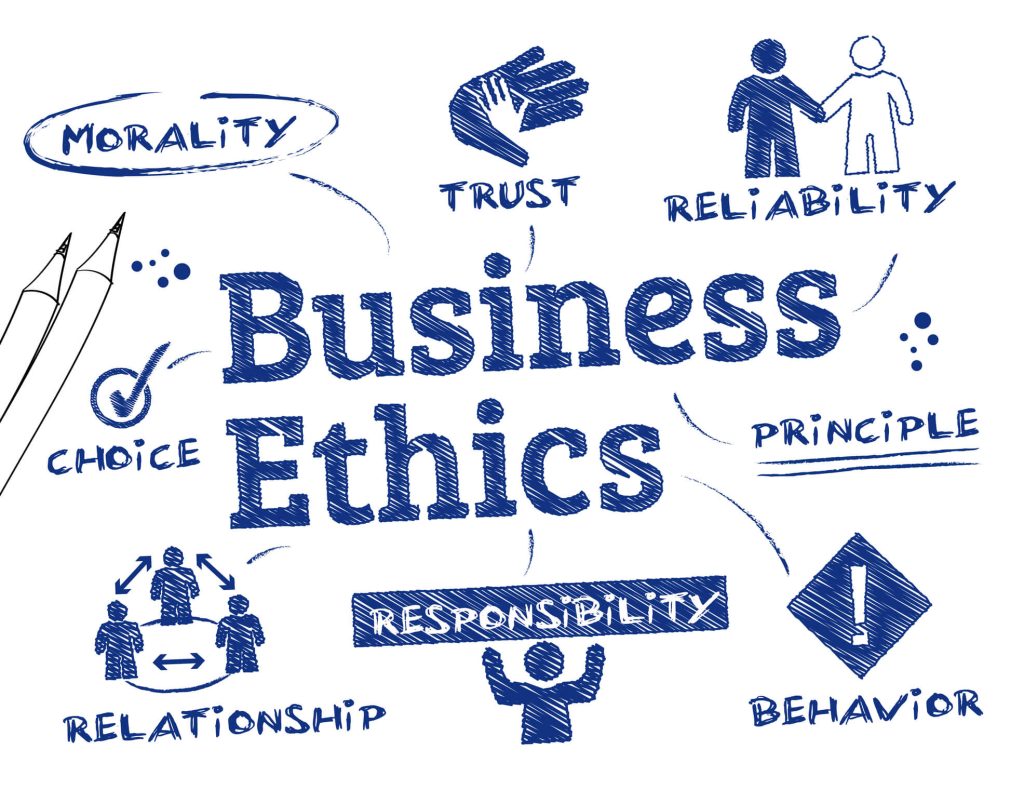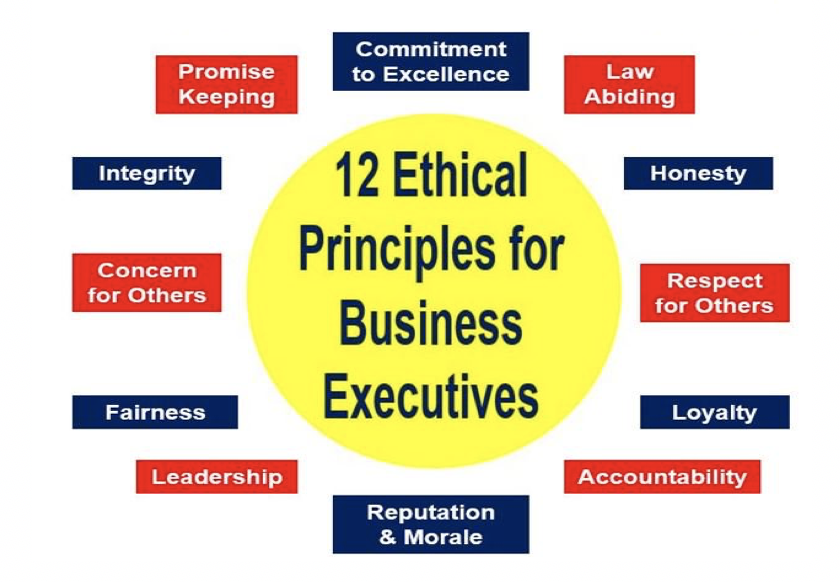Ethics is now considered to be a crucial business role, much as finance and marketing. Business ethics has a significant influence in the corporate world. It not only changes the way businesses operate on a day-to-day basis, but it also affects the laws surrounding corporate regulation. What is business ethics? The importance of business ethics in business development will be explained in detail in today’s article.
What is Business Ethics?
By definition, business ethics are the ethical principles that serve as a guide for how a business conducts itself and its dealings. Business ethics elevates the law by outlining acceptable behavior beyond government control. Corporations establish business ethics to promote integrity among their employees and earn trust from key stakeholders, such as investors and consumers. Business ethics helps businesses make sound and ethical decisions and helps them build trust with customers.

The significance of business ethics in the development of businesses
The value of business ethics is clear from how businesses operate. An organization’s conduct in these areas is governed by business ethics, which also ensures compliance with legal requirements. This manual assists companies in preserving a respectable public image.
The best talent is drawn to companies with excellent employee perks. The cornerstone for good employee care is business ethics. Additionally, offering top-notch perks to workers raises productivity and motivates them to stick with the company’s long-term goals. Building relationships between firms and customers requires a strong sense of business ethics.

Long-lasting connections with consumers are frequently developed by businesses that have an open, transparent operating structure and treat their clients properly. Customers will find it simpler to trust your company and the goods or services it offers as a result. Business ethics also assist in preserving a company’s standing with investors who want openness in its activities. They want to know precisely how their money is being spent, to put it another way.
Principles of Business Ethics
In general, there are 12 business ethics principles:
- Leadership: Making a deliberate effort to use, incorporate, and model 11 more principles to direct actions and conduct in all spheres of professional and private life.
- Accountability: Hold yourself and others accountable for their actions. Commit to ethical practices and ensure that others follow ethical principles.
- Integrity: Incorporates other principles- honesty, trustworthiness, and dependability. A person of integrity always does the right thing and tries to hold himself to a higher standard.
- Respect for others: In order to promote ethical behavior and ethical workplace culture, respect for others is a crucial component. The rights to privacy, equality, opportunity, and empathy must be accorded to all people.
- Honesty: Truth in all matters is the key to cultivating an ethical climate. Partial truths, omissions and under or exaggerations do not help a business improve its performance. Bad news should be communicated and received in the same way as good news so that solutions can be developed.
- Respect the law: Ethical leadership should include the enforcement of all local, state, and federal laws. If there is a legal gray area, leaders should be on the side of legitimacy rather than exploiting the loophole.

- Accountability: Promote ownership in an organization, allowing employees to take responsibility for their work and take responsibility for yours.
- Transparency: Stakeholders are those with an interest in the company, including shareholders, workers, the communities where the company conducts business, and family members of employees. Companies should make sure that information regarding their financial status, pricing adjustments, hiring and firing, wages and salaries, and promotions are accessible to individuals with an interest in the company’s success without compromising trade secrets.
- Compassion: Employees, the community around the business, business partners, and customers should all be treated with care for their well-being.
- Equity: Everyone should have equal opportunities and be treated equally. If a practice or behavior makes you feel uncomfortable or puts personal or company interests above equality, common courtesy, and respect, it may not be fair.
- Loyalty: Leaders should be committed to the success of the business and their team. Encourage managers and staff to be loyal, ensuring that they are dedicated to doing the finest work possible.
- Environmental Concerns: Being aware of and caring about a company’s environmental effects is crucial in a world where resources are few, ecosystems have been devastated by human activity, and the climate is changing. All staff members must be encouraged to look into and disclose remedies for actions that could have resulted in more harm than good.
Types of Business Ethics
Corporate Social Responsibility
Corporate social responsibility (CSR) is the idea of serving stakeholders’ requirements while also considering how doing so would affect the workforce, the environment, society, and the local communities in which they operate. Enterprises are active. Finances and earnings are essential, but they should come after the welfare of the community, clients, and staff.
Transparent and reliable
It is essential for companies to ensure that they are reporting their financial results in a transparent manner. This applies not only to the required financial statements but to all reports in general.
Technological and ethical practices
Businesses must make sure that the technology and data they acquire are being handled responsibly as their usage of technology in company operations increases across the board. Additionally, it is crucial to keep technology as safe as possible, particularly because many companies retain client information and gather data that might be abused by bad actors.
Fair
The workplace must be inclusive, diverse and equitable for all employees regardless of race, religion, creed, age or identity. A fair work environment is one where everyone can grow, get promoted and become successful in their own right.

How to Implement Good Business Ethics?
It takes time and works to create a culture of ethical conduct and decision-making, and it always starts at the top. To enforce ethical behavior, the majority of businesses must have a code of conduct or ethics, as well as rules, reporting methods, and training programs. Following the definition of behavior and the implementation of programs, regular contact with employees becomes crucial. Leaders should constantly urge staff to report worrisome conduct and provide confidence that whistleblowers won’t be subjected to unfavorable treatment.
Conclusion
Business ethics takes into account stakeholders like shareholders, consumers, society, and the environment. To guarantee that employees prioritize the needs and welfare of the people they serve, every firm should establish ethical models and procedures. In addition to boosting sales and profits, doing so also fosters a healthy work atmosphere and fosters trust among clients and business partners.

